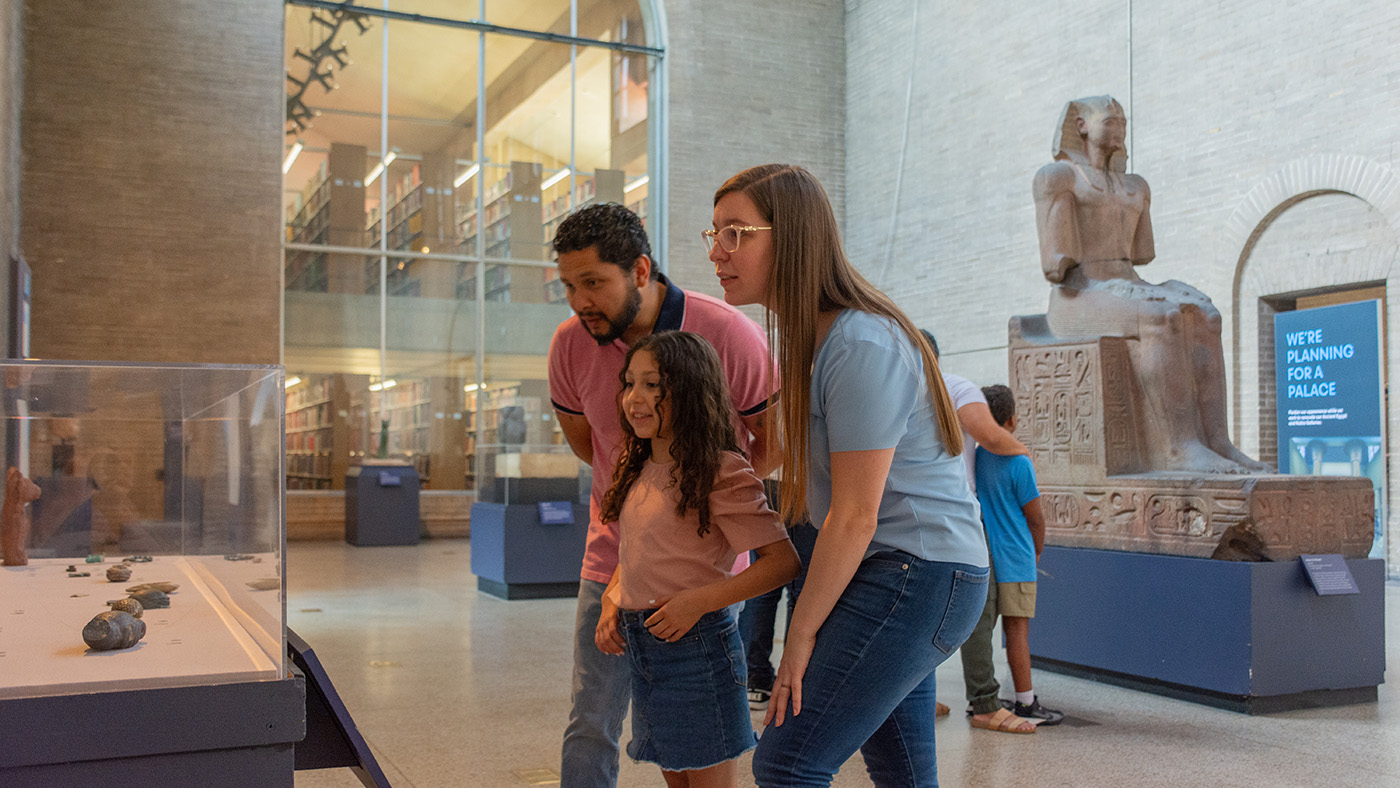Penn Museum to Begin a Monumental Transformation of its Ancient Egypt and Nubia Galleries

PHILADELPHIA, September 7, 2023-This fall, the Penn Museum will embark on its largest renovation in the institution's 136-year-history: Transforming the 14,000-square-foot Ancient Egypt and Nubia Galleries, which will unveil an unprecedented experience among North American museums.
To make way for this multi-year construction project, the current Egypt Gallery, which first opened in 1926, will close to the public on November 6, 2023 for the safety of guests and staff.
University of Pennsylvania archaeologists have been excavating in Egypt and Nubia for more than a century. These excavations built the Museum's collection of about 50,000 Egyptian and Nubian objects, which spans from 4,000 BCE through the 7th Century CE-one of the largest in the United States.
To showcase this collection during the Egypt Gallery's closure, an exhibition, Ancient Egypt: From Discovery to Display, will stay open during construction. Egyptian artifacts will also be on view in the Africa Galleries and the new Eastern Mediterranean Gallery. Other permanent galleries illuminating the vibrant cultures of Africa, Asia, the Americas, the Mediterranean, and the Middle East, special exhibitions, and year-round programming will still be part of a Penn Museum visit.
The Museum will continue to host weddings and private events of all sizes in its exquisite historic spaces such as the Sphinx Gallery, the Rotunda, the Upper Baugh Gallery-a new event location as of fall 2023-the rooftop terrace, and its scenic outdoor gardens.
The next phase in the Museum's ongoing Building Transformation, reimagining the Ancient Egypt and Nubia Galleries, will unfold in two phases: the Main Level and Upper Level.
With a targeted opening date near the end of 2026, the galleries on the Main Level will focus on Life and Afterlife in Ancient Egypt. The large central gallery will be anchored by the limestone tomb chapel of Kaipure, which has not been on display in its complete state for more than 30 years. Dating back to 2,300 BCE in Saqqara, the tomb chapel was a place where priests would perform funerary rituals and leave offerings to ensure the deceased would prosper in the Afterlife.
The Upper Level will showcase gods, kings, and pharaohs-including a breathtaking monument: the 3,000-year-old palace of the Pharaoh Merenptah, with 30-foot-tall columns on display at their full height for the first time since their excavation more than 100 years ago. These galleries are targeted for completion by late 2028.
"Unveiling the Ancient Egypt and Nubia Galleries will be a feat of major significance and a point of cultural pride for the Greater Philadelphia region and beyond. Nowhere else outside of Egypt will visitors be able to walk through soaring architectural elements of an ancient Egyptian palace-it is worth the wait," says Dr. Christopher Woods, Williams Director at the Penn Museum. "These galleries will provide an unparalleled opportunity to glimpse a day in the life of ancient Egyptians and Nubians-not only powerful, famous pharaohs, but also working citizens who fueled two of the world's oldest and enduring societies."
One-hour private tours of the Egypt Gallery are available every Saturday and Sunday in October. Cost is $24 per person and includes Penn Museum admission for the entire day. For Penn Museum members, the cost is $12.
In addition, the Museum has launched an Experience Ancient Egypt Giveaway, offering a chance to win prizes inspired by its world-renowned Egyptian collection, including a private gallery tour for up to 10 people. The sweepstakes will run through September 18, 2023.
Sunday, November 5 will be the final opportunity for guests to visit the current Egypt Gallery, which spotlights artifacts such as a golden mask, sarcophagus lid, and the seated statue of the Pharaoh Ramses II (1290-1224 BCE) from the temple of Harsaphes.
Access to all galleries and exhibitions is included with Penn Museum admission.
###
About the Penn Museum
The Penn Museum’s mission is to be a center for inquiry and the ongoing exploration of humanity for our University of Pennsylvania, regional, national, and global communities, following ethical standards and practices.
Through conducting research, stewarding collections, creating learning opportunities, sharing stories, and creating experiences that expand access to archaeology and anthropology, the Museum builds empathy and connections across diverse cultures
The Penn Museum is open Tuesday-Sunday, 10:00 am-5:00 pm. It is open until 8:00 pm on first Wednesdays of the month. The Café is open Tuesday-Thursday, 9:00 am-3:00 pm and Friday and Saturday, 10:00 am-3:00 pm. On Sundays, the Café is open 10:30 am-2:30 pm. For information, visit www.penn.museum, call 215.898.4000, or follow @PennMuseum on social media.
Through conducting research, stewarding collections, creating learning opportunities, sharing stories, and creating experiences that expand access to archaeology and anthropology, the Museum builds empathy and connections across diverse cultures.



